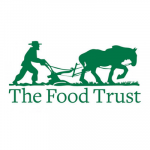
On Thursday morning, February 3rd my group had the pleasure of interviewing Deborah Ramelli. She is the Director of Development and Community Affairs. She works for
Ceres Community Project (Sear-ees-). The Ceres Community Project has a vision and a statement. The vision: A healthy, just, caring and sustainable world. Their mission: We create health for people, communities and the planet through love, healing food and empowering the next generation. The Ceres Community Project was founded in 2007 by Cathryn Couch; JoEllen DeNicola. Deborah has been with the Ceres Community Project practically since they were founded and has helped many people during the process.
Deborah told us about her diverse background which includes working for corporations and not-for-profits in addition to running her own small business. Deborah holds a BA in Political Science, is a yoga teacher, and a Nutrition Educator. She is also an enthusiastic gardener and cook, and loves bringing people together over a table of great, healthy food.
For me listening to Deborah was very informative and interesting to hear. She talked about what the Ceres Community project does and how it’s slightly different than what we believe their values were. Even then it was still very beneficial to our group I believe because it still relates to my group’s topic which was a very broad category at the time. In fact it helped us specify what it is we are truly trying to help. Even with the slight hiccup Deborah’s statements were just so interesting to hear and so beneficial to hear because it showed how much people have had to deal with in the past few years especially with the current pandemic around the world a lot of people had to deal with food insecurities. Overall it was a great experience and I’m excited to continue this research.
Read more


















